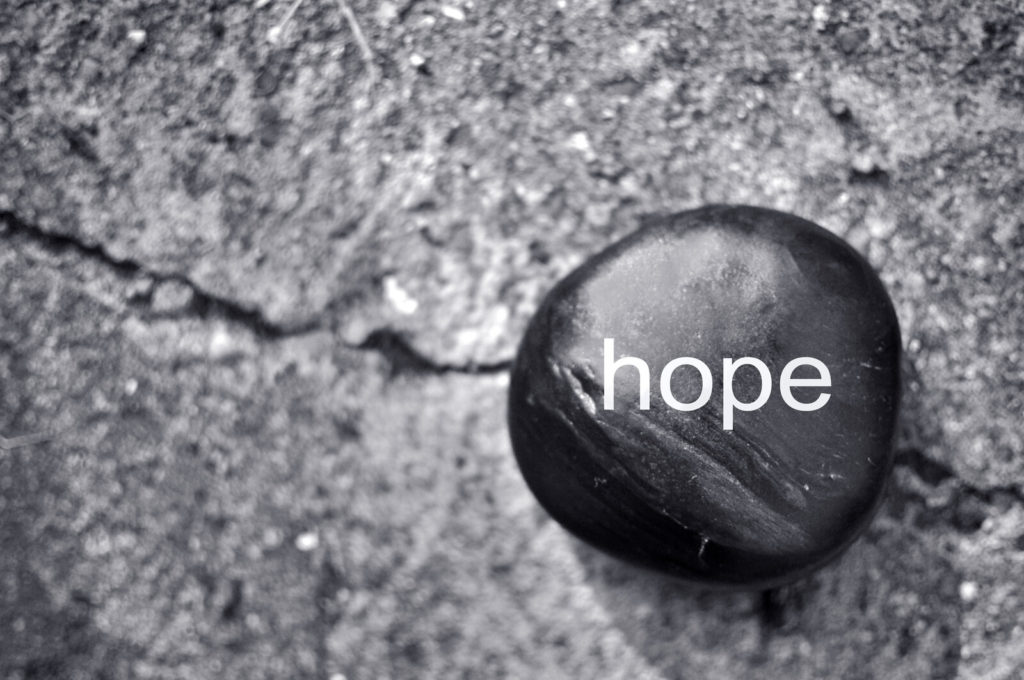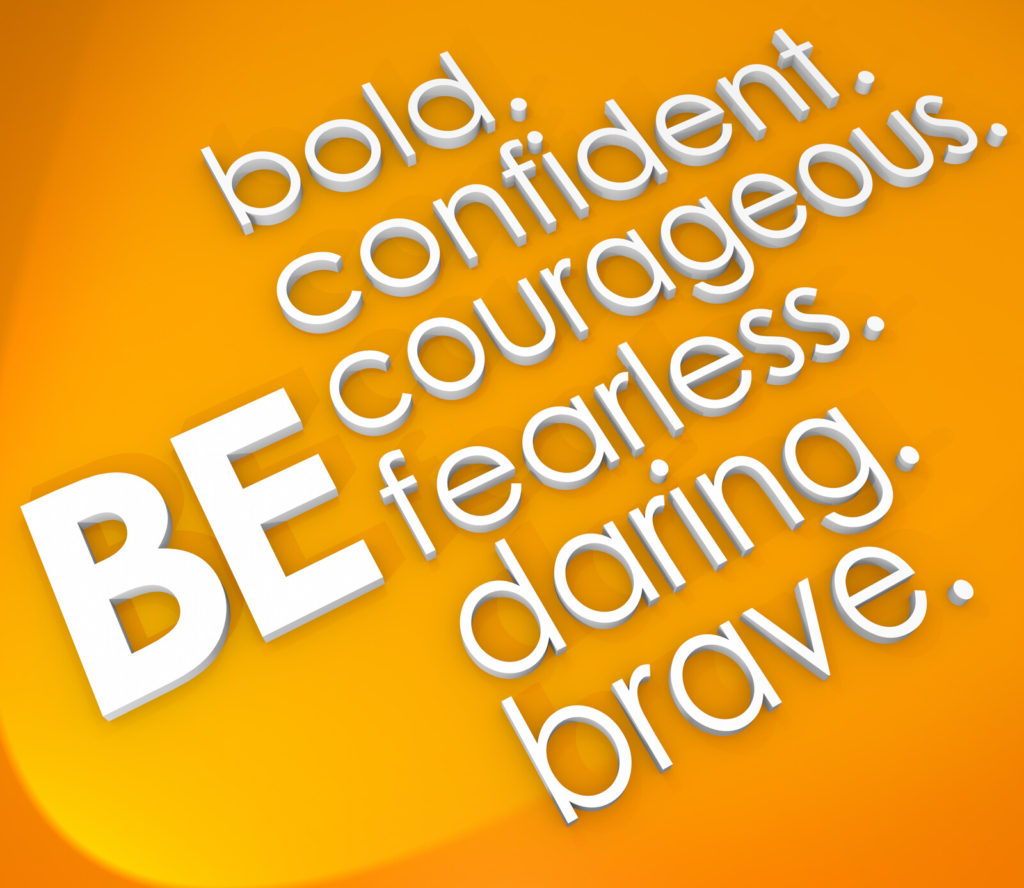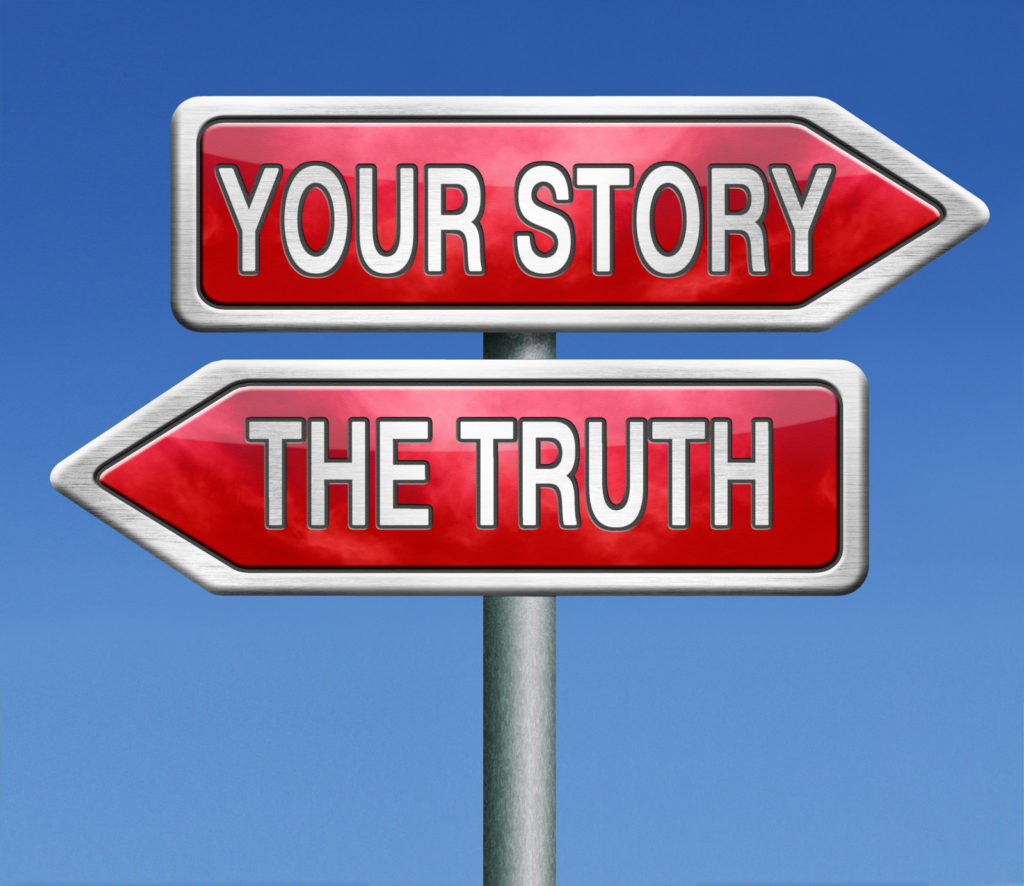“Reduce Stress Through Focused Breathing”
Category Archives: Personal Development
Taking Charge in Times of Change (Part 3)

Change is not an option. Change is an Opportunity.
In this series on dealing with change, I have been sharing with you how it is possible, even during challenging times, to actually thrive rather than just survive.
As I shared in Part 1, there are 3 keys to taking charge of your life during times of change:
The question is: How can you take advantage of this opportunity of change to dramatically move forward in your personal and professional life?
- Adjust Your Personal Vision
- Discover Hope Out of Helplessness
- Turn Powerlessness into Action
In my previous post (Part 2), I discussed that it is possible to discover Hope Out of Helplessness. In my final post in this series I would like to share:
Key #3 – Turn Powerlessness Into Action
Change and uncertainty can lead to feeling powerless, victimized and weak.
In order to take charge of your life, even during challenging days, it is crucial to turn our sense of feeling powerless and out of control into Action. Here are 3 key steps to take back your life during tough times:
Taking Charge in Times of Change (Part 2)

Change is not an option. Change is an Opportunity.
In this series I have been sharing with you how it is possible, during challenging times, that you can actually thrive rather than just survive.
How can you take advantage of this opportunity of change to dramatically move forward in your personal and professional life?
As I shared in Part 1, there are 3 keys to taking charge of your life during times of change:
- Adjust Your Personal Vision
- Discover Hope Out of Helplessness
- Turn Powerlessness into Action
In
my previous post, I discussed the importance of adjusting your personal
vision (your unique picture of your personal future) in order to adjust
the way in which we see our future to fit the new situation/condition
by letting go to move forward. In this post I would like to share:
Key #2 – Discover Hope Out of Helplessness
“Change is hard on hope.”
Change and uncertainty can lead to:
- Discouragement, losing your spirit
- Feeling helpless or out of control
- Destroying your self-confidence
- Draining your energy
In order to deal with the uncertainty and fear of the future, we often will put on what I call ‘emotional armor’ to protect yourself. It makes sense that we would want to feel safe and protected during times of change, yet there is a cost to carrying around such armor.
In Medieval times, armies would create more and more armor to protect themselves from the enemy until it reached a point where the army with too much armor became weighed down and unable to fight!
In
much the same way, extreme caution and fear can lead to emotional
paralysis. You can become so weighed down with anxiety that you freeze while the realities of life keep on going.
Your focus
on current and possible future problems destroys your ability to see
opportunities within the change that is happening.
There are 3 types of emotional armor that many put on to protect ourselves. The key is to identify your armor in order to remove it and to feel lighter.
- The Armor of the Fear of Risk-Taking(Resistance to Change)
Change is scary, and our tendency is to lose a childlike response to life.
“One of the most responsible things you can do as an adult is to become more of a child.” ~ Wayne Dyer
In times of change, become more childlike:
- Take chances- become creative and more flexible
- Change “What if” thinking to “So what” thinking
- Allow for spontaneity in your life – start dreaming again!
- Give yourself permission to laugh, have some fun and relax
“With a little madness (and childlike thinking) you can cut the rope (of fear) and be free!” ~Zorba the Greek
- The Armor of a Lack of Self-Confidence
During times of change, LISTEN to your self-talk – Is it positive or negative?
As I have shared in a past post, quiet that negative and fear-inducing voice in your head!
“You cannot consistently perform or live in a manner which is inconsistent with the way you see or talk to yourself”
- The Armor of Stress and a Lack of Balance
Take time for self-care:
- Regular exercise, sleep and diet
- Slow, focused breathing during times of anxiety
- Set aside time for intentional activities for relaxation
“If the snooze button on your alarm is getting as worn out as you are, wake up – you may be burning out!” ~Patty Boyd
Identify and remove your emotional armor.
Change is not an option, but an opportunity to Discover Hope Out of Helplessness
I look forward to sharing Key #3, Turn Powerlessness into Action, in my next Post.
Taking Charge in Times of Change (Part 1)

Change is not an option. Change is an Opportunity.
Change can happen slowly over time, and sometimes in what feels like a blink of an eye.
Think about changes in technology.
In 1943, the Chairman of IBM said, “I think that there is a world market for maybe 5 computers.”
In 1949, Popular Mechanics announced to a stunned readership that, “Computers in the future may weigh no more than 1.5 tons!”
In 1977, the founder of Digital Equipment Corporation said, “There is no reason anyone would want a computer in their home.”
Then there are cultural changes as reflected in a Good Housekeeping magazine article in 1955 titled “The Good Wife’s Guide” that included such advice as, “Be a little more interesting for him…Be happy to see him…Make the evening his…Don’t greet him with complaints…A good wife always know her place.”
Ladies, please don’t kill me, I am only sharing an old article, not recommending it!
Yes, change has been, and will always be, happening.
My favorite story regarding how becoming older creates new challenges is the following,
A senior citizen is driving down the freeway, and his cell phone rings. He answers it and hears his wife’s voice urgently warn him, “Herman, I just heard on the news that there is a car going the wrong way on the 57. Please be careful!”
Herman responds, “It’s not just one car. It’s hundreds of them!”
Yes, humor is crucial during challenging times of change.
Yet, how is it possible, in times such as we are seeing all around us, that we can actually thrive rather than just survive? How can we take advantage of this opportunity of change to dramatically move forward in our personal and professional lives?
There are 3 keys to taking charge of your life during times of change.
- Adjust Your Personal Vision
- Discover Hope Out of helplessness
- Turn Powerlessness into Action
In this post I would like to share Key #1:
- Adjust Your Personal Vision
Our Vision is the manner in which we see, imagine or dream of something, your unique picture of your personal future.
Then change happens.
During change we must adjust the way in which we see our future to fit the new situation/condition by letting go to move forward.
It is so easy to want to focus on and cling to what has always been and felt comfortable, i.e., the way it used to be.
Yet, to move forward we must accept the reality of change/loss, allow ourselves to experience feelings of sadness, frustration or even pain, and then commit to moving forward, learning new skills, adapting to new situations and managing stress and overload.
Ask yourself, “Where am I going” “What is Important to Me?” “What are my Priorities”
Deep down, in your heart of hearts, what do you want? In your personal life, your health, in your career, and in the life of others.
In times of uncertainty and change, where are you headed, what is your dream?
“All who have accomplished great things have had a great aim, have fixed their gaze on a goal which was high, one which sometimes seemed impossible.” ~ Orison Swett Marden
Change is not an option, but an opportunity to adjust the direction of your life and career.
I look forward to sharing Key #2 in my next Post. In the meantime, in what ways are you intending to adjust your own personal vision this week?
Have an Active Orientation to Life!

A theme that continually comes up in my coaching sessions with those who desire to move forward in their life, whether in dealing with a stressful performance situation, or in life experiences in general, is the hesitation to go after what they truly desire.
It is the difference between passively allowing fear and anticipation to guide your decision-making rather than having an active orientation to life.
In your art, in a performance situation or in significant relationships, are you a person who goes after what they want?
Do you say to the world, “This is what I want. I’m going to go for it.”
Children, before they ‘learn’ to be afraid or avoid anxiety-producing situations, will bounce back whenever they hit a wall or roadblock because that is what little kids do – until we teach them not to do it, until we knock that fearless perseverance out of them.
They just go for it.
Are You Lying to Yourself?

There are few phrases that I hear in my practice as a Performance Coach that are as deadly as, “That’s just the way I am.”
Deadly as in creating a wall, or roadblock, to achieving the goals that are the most meaningful to you. It is a phrase that so many of my clients have tolerated in their life and which, if not challenged and overcome, becomes a belief as true in their thinking as the sun will surely go down tonight. If I have always believed it, then it must be true about myself.
Those who have experienced my style of coaching understand that when I hear such a phrase, I immediately challenge it – as those words cannot be allowed to linger for a moment in your thinking without more damage being caused.
This damage can be in the form of holding back when given an opportunity to move forward in your career (“Well, I would love to be considered for a promotion, yet if it involves giving more presentations, then I will have to decline because…That’s just the way I am, I cannot speak in front of an audience without anxiety”).
“I would love to start my own business, or create a new piece of unique art, or start the book I have always dreamed about but unfortunately I cannot, as I have never felt much confidence in my abilities, because that’s just the way I am.”
Do you avoid or say no or disregard an opportunity to take risks because you have always believed that you are not enough, that it is just the way that you are?
Who is in Charge of Your Life?

Do you act or react in your life? I was with a friend recently who bought an item in a store. He thanked the salesperson politely, but the seller didn’t even acknowledge him. I said, “He sure had a pretty crummy attitude.” My friend replied, “Every time I buy something from him, he’s always that way.” I asked him, “Then why do you continue to be so polite to him?” He responded, “Why not? Why should I let him decide how I am going to act?” I thought about it later and it occurred to me that the critical word was act.
Most people tend to react to others versus act (respond with self-control) towards people as my friend did. Who is in charge of your life? Are you acting, are you in control from the inside out, or do you react to people, to your inner fears, to situations that you think are going to be scary or hurtyou? If you are dependent on what others think or what you are afraid might happen in a given situation then you will tend to react, rather than respond, and let others or your fears control you.
Do you have a sense of inner balance, of knowing who you are, what you stand for and how you choose to behave? Nobody is less happy than the perpetual reactor, where their center of emotional gravity is not rooted within themselves where it belongs, but in the world outside. Is your center of who you are, the center of what helps you make decisions, choices and responses to situations that create fear – is it the result of something that is coming from the center of you or from ‘out there’.
Are you controlled by what people are going to think of you and the fear of rejection? Do you react to situations rather than act? My goal for you is to work towards being able to say, “I am going to start to act, I am going to attack my world, attack my fears. I am going to begin to become centered, to be in charge of my life.”
You might be so anxious and afraid of what others are going to think of you or are so afraid of taking a chance because you feel that you are not enough. Maybe you heard the message growing up that the world is too dangerous and that it is not safe. It is too big and you are so small, not enough to handle what life might throw at you. You have become so dependent on what goes on outside of you, that you have lost your sense of self. Your fear as a child, with possible critical rearing and chaos in your family may have contributed to the insecurity that you feel at times.
Our journey in life is to move, as a child, from being dependent on others, to becoming independent and, then, to finally becoming interdependent in a way where you can have a relationship with someone and say, “I don’t have to lose myself if I’m going to have a relationship with you. I’m going to take into account your needs and I’m going to listen to you and try to be sensitive because I care about you, but I’m still, even in that process, not going to lose myself.”
Many of you have remained emotionally dependent on others. The key question to ask yourself is,
“Am I internally controlled or externally controlled?”
Do you make your decisions based upon what other people think? At a social function, do you stay quiet before giving my opinion, listening to what others’ opinions are? It has been said that emotional dependence cripples the ability of your self-concept to grow and to be creative to make your own decisions, because you are at the mercy of others. You spend all of your energy trying to decide which voice or which opinion to follow. This dependency kills off any chance for you to be creative, spontaneous or take chances. How can you be a risk taker if you are so concerned about what others think about you? The end result is that you become a safe person.
The problem is that, as a result of always playing it safe, you can end up going through your life. and then look back and honestly say that you rarely ever got rejected or hardly failed at anything. Instead of asking yourself what you are achieving in life, you can only say that you got through it – you survived. The goal, for many of you, is to just get through, to survive life. “I don’t want to have my feelings of panic, I don’t want to fail, I don’t want people to laugh at me. If I can do that, I will have a successful life.” To me, that is really sad, because you have so much potential. You have so much inherent ability and there are so much potentially exciting things out there for you.
I challenge you to commit towards choosing to act rather than react – take charge of your life today by stop giving power away to fear and what others think.

I hope that you are doing well as we go through this time of challenge together. It has been so amazing to watch those in my community, from places all around the world, share with me stories of struggle as well as amazing victories and breakthroughs.
As I have shared in a past post, there is so much power, especially during times such as this, in practicing intentional Focused Breathing. In all of my work with those who struggle with anxiety or stressful situations, I have found this exercise, when applied and practiced, incredibly effective in inducing a relaxed state in your mind and body.
In fact, research has proven that your heart rate, blood pressure, and even body temperature can be affected by how you breathe! This is certainly valuable while our minds race ahead and question what is to come and when life will get back to ‘normal.’
I have provided an audio of the Focused Breathing exercise that I use in some of my Courses and Coaching work and know that if you practice it throughout your day, it will benefit you like it has for so many that I have worked with.
There are no excuses for not taking advantage of this skill, as you are already breathing, it is free and only takes a couple of minutes to practice! I look forward to hearing how you have used the exercise.
Click on the image above, sit back and get ready for a deep feeling of relaxation!